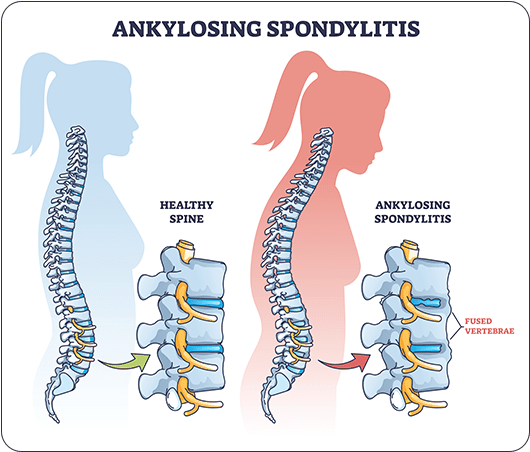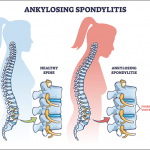Ankylosing Spondylitis (AS) is a chronic inflammatory condition that predominantly affects the spine, causing pain, stiffness, and potentially leading to a fused spine. Despite its serious nature, is there enough awareness about the early signs and symptoms of this condition?
Understanding Early Symptoms
According to the Mayo Clinic, the early symptoms of AS mainly revolve around back pain and stiffness in the lower back and hips, especially prominent in the morning and after periods of inactivity. But are these symptoms often dismissed as general back pain?
Key Indicators of AS

The Versus Arthritis organization highlights the importance of recognizing key symptoms such as swollen and painful joints, particularly around the spine, and fatigue. Yet, is the medical community efficiently diagnosing based on these indicators?
Progression of Symptoms
Over time, the symptoms may progress, encompassing not only the lower back and hip pain but also neck pain, joint pain, and even difficulty in breathing, as outlined by the Cleveland Clinic. The complexity of symptoms raises the question, are patients getting timely intervention?
Frequency of Symptoms
The frequency and gradual onset of pain and stiffness in the lower back and buttocks are essential to note, as mentioned by Spondylitis.org. But, are these symptoms being routinely checked and addressed?
NHS Inform Insights
NHS inform emphasizes that back pain and stiffness are usually the primary symptoms of AS and that exercise can alleviate the pain. However, is this advice universally beneficial for all AS patients?
Comprehensive Approach to Treatment
Finally, a comprehensive approach to treatment, as described by the NIAMS, is crucial for managing AS. The discussion on treatment strategies leads to the controversial question, are all patients receiving personalized care?
In conclusion, while the information available on Ankylosing Spondylitis is extensive, it calls for heightened awareness and early diagnosis. The underlying controversy revolves around whether the medical community and the public are overlooking critical symptoms, thereby delaying essential intervention and personalized care.
